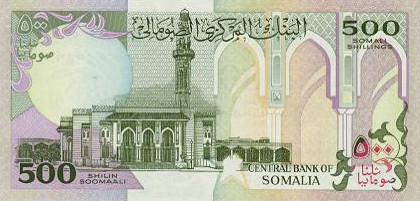Woman's Got The Power: As Somali Economy Struggles, First Female Bank Governor Yussur Abrar Takes The Helm

It's been a rough year for the Central Bank of Somalia, but now the country's first female bank governor will try her hand at cleaning up the mess left by her much-maligned predecessor.
Yussur Abrar has been appointed by Somali President Hassan Sheikh Mohamud to take over the bank pending a formal handover of power. She has three decades of experience in banking, insurance, telecommunications and finance consultancy.
The appointment is significant since Somalia has quite a ways to go in terms of women's rights. A U.N. development report last year ranked the country the fourth worst in the world in terms of gender equality. The challenges and injustices faced by women include genital mutilation, higher rates of unemployment, lack of property rights, and limited access to reproductive healthcare.
The government is working on the establishment of quotas to ensure women's representation in the national government, and Abrar's appointment to one of the country's most influential positions is an encouraging development on that front.
The former central bank governor, Abdusalem Omer, a Somali-American with experience working for the mayoral office of Washington, D.C., came under intense scrutiny this July following the publication of a report from the U.N. Monitoring Group on Somalia and Eritrea, which alleged that Omer had played a major role in turning the central bank into a "slush fund" for corrupt officials in the capital city of Mogadishu. The report noted that $12 million had apparently “disappeared” into thin air during a transfer of $16.9 million to the central bank in Mogadishu.
Omer denies these accusations, and the Somali government asserted his innocence on Aug. 30 based on the results of an investigation it commissioned, calling the U.N. allegations "factually inaccurate and inexplicably biased." But on word that the bank's leadership was about to go through a major reshuffle, Omer sent in a letter of resignation on Sept. 16.
When Omer first began his stewardship of the bank in January, he was starting from scratch. Somalia had only recently begun its recovery from two decades of failed statehood; the country disintegrated into a violent battleground following a coup that ousted former President Mohamed Siad Barre in 1991.
Last year, the implementation of a new constitution and central government was hailed as a milestone for the poverty-stricken country of 11 million. But establishment of a central bank was fraught with myriad problems. Comprehensive data on demographics and economics were -- and are -- largely nonexistent. Old Somali currency has been circulating in the Horn of Africa, without any official oversight, for decades. The country has no commercial banks, though wire-transfer companies have sprouted up to bring back remittances from abroad worth about $1.5 billion annually.
Abrar will be tasked with setting the stage for a fiscal renaissance in Somalia. She intends to implement policies to address widespread poverty and unemployment, oversee the licensing of a network of commercial banks, and encourage the establishment of a comprehensive regulatory framework. Foreign aid monies will help to fund these initiatives; this week, international donors at a conference in Brussels pledged $2.4 billion to fund Somali's infrastructural and fiscal reconstruction.
© Copyright IBTimes 2024. All rights reserved.





















